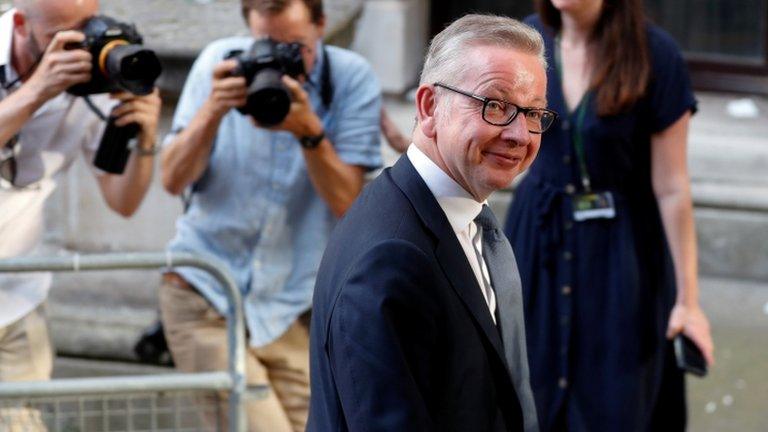Boris Johnson on first Welsh visit says no-deal Brexit up to the EU
- Published
- comments
"We will look after the farming sector"
The prime minister has said it is "up to the EU, this is their call" if the UK leaves the EU without a deal.
Boris Johnson made his first visit to Wales as PM on Tuesday, seeking support from farmers for his Brexit plans.
He held talks with Wales' First Minister Mark Drakeford, who said there was a "deeply concerning lack of detail" from the new prime minister.
Mr Johnson said: "We're not aiming for a no-deal Brexit, we don't think that's where we'll end up."
"This is very much up to our friends and partners across the channel," he added.
A Welsh farmer called on Mr Johnson to stop "playing Russian roulette" with the lamb industry over the threat of a no-deal Brexit.
It followed the Farmers' Union of Wales president warning of "civil unrest" in rural areas if no agreement is struck.
Earlier, the prime minister had his first phone call with Irish leader Leo Varadkar since taking office.
The visit to Wales came as the Conservatives fight to hold Brecon and Radnorshire in a by-election on Thursday.
Mr Johnson visited a chicken farm in St Brides Wentlooge, near Newport, before travelling to online retailer BVG Group in Brecon.
He later attended a meeting in the Welsh Assembly with Mark Drakeford, where he was booed by a group of protesters on arrival.
In a news conference afterwards, Mr Drakeford said they had an "engaged discussion" on Brexit.
The Welsh Labour leader said he pressed Mr Johnson to explain the path to a deal with the EU but did not get a "clear sense" from him of what the plan would be.
What is the food and farming sector worth to Wales? Here is a quick video guide.
Mr Drakeford said he emphasised the "catastrophic effect" a no-deal Brexit would have on the Welsh economy, and said the PM provided assurances of support for manufacturing and agriculture in such a scenario.
"But asked to describe the nature of that support, I'm afraid that there is a deeply concerning lack of detail that is available to people whose livelihood is on the line," Mr Drakeford said.
The first minister said the PM told him there would be many new opportunities for Welsh agriculture and businesses, but he had "no sense again" there was detailed thinking behind what "otherwise becomes vacuous optimism".
Mr Drakeford said he warned Mr Johnson "the future of the UK is more at risk today than at any other point in his political lifetime", and said he had put ideas to him on how the Union could be "reinvented".
A Downing Street spokeswoman said the two spoke about the importance of the union and support for farmers in Wales.
She added: "The PM set out how the UK will be leaving the EU on October 31st, come what may, and said he would seek to work with the Welsh Government and other devolved administrations, to make sure communities across the UK are ready to maximise on the opportunities that Brexit will bring."
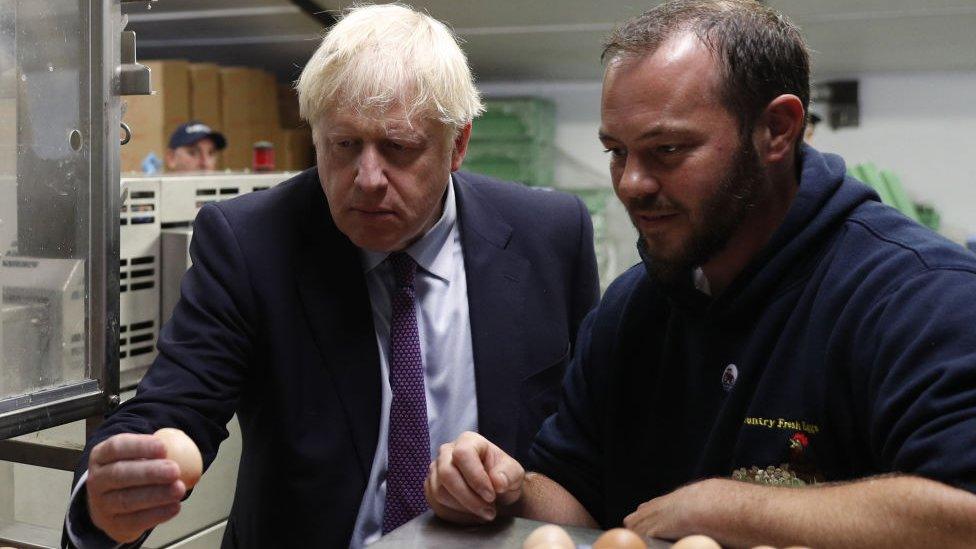
Boris Johnson is seeking to reassure farmers about his Brexit plans
Many Welsh farmers are heavily reliant on free trade with the EU. If the UK leaves without a deal many would face significant tariffs on their exports to EU countries.
The prime minister did not give any television interviews to Welsh broadcasters on Tuesday.
However, during the farm visit, he told reporters the agriculture sector will "have the support they need" in the event of no-deal.
"We will make sure that they have the support that they need, if there are markets that are going to be tricky that we help them to find new markets, we have interventions that aim to support them and their incomes," Mr Johnson said.
"The most important point is that we don't want tariffs and we don't envisage they will be necessary.
"And I think common sense would dictate it would be better and massively in the interests of our EU friends to have a zero-tariff, zero-quota regime of the kind we currently have."
Mr Johnson suggested funds for "export refunds" would be made available for the Welsh Government to administer.
Asked how the system would work, given agriculture is devolved, he said: "It will be up to the Welsh Government to administer it. We will make sure the funds are available."
A Welsh Government source said they were surprised by the nature of the announcement.
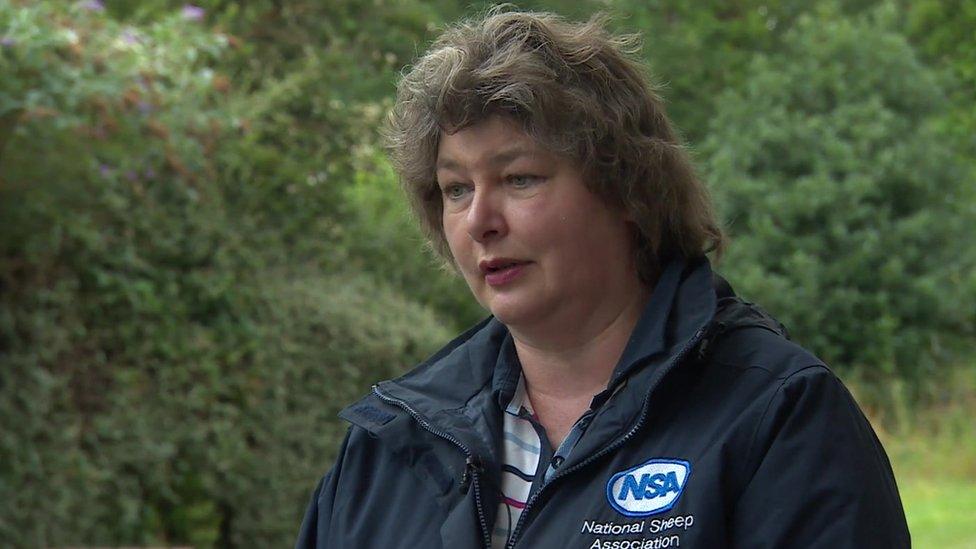
Helen Roberts called on Boris Johnson to stop playing "Russian roulette" with the lamb industry
The farming industry is worth more than £6bn to the Welsh economy and supports 14,000 businesses, 45,000 jobs and about 25,000 farmers.
Welsh lamb will face at least 40% tariffs in a no-deal scenario, prompting a sheep farmer to call for Mr Johnson "to stop playing Russian roulette with the industry as he appears to be doing at the moment".
"If we do go out with a no deal, it will be absolutely catastrophic even if it is just for a few months," Helen Roberts, who is also development officer for the National Sheep Association in Wales, told Radio 4's Today programme.
She said her members would protest against a no-deal Brexit, adding: "I think it's time to come and stand up for ourselves, and be counted."
On Monday, the prime minister said there was "every chance" a Brexit deal with the EU could be struck, but the existing agreement with the EU has "got to go".
However senior minister Michael Gove, who has been put in charge of preparing for no deal, has said the UK government was working on the assumption the UK would leave the EU without an agreement.
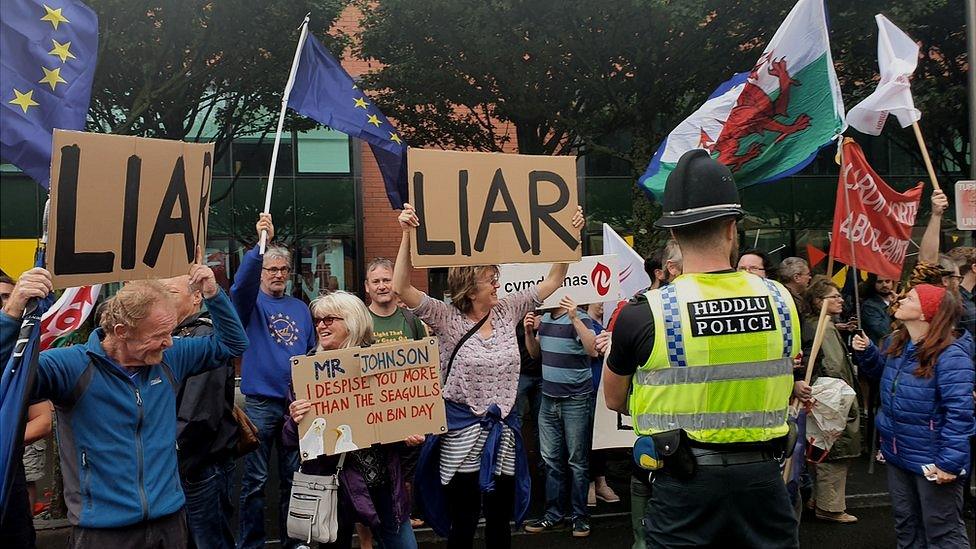
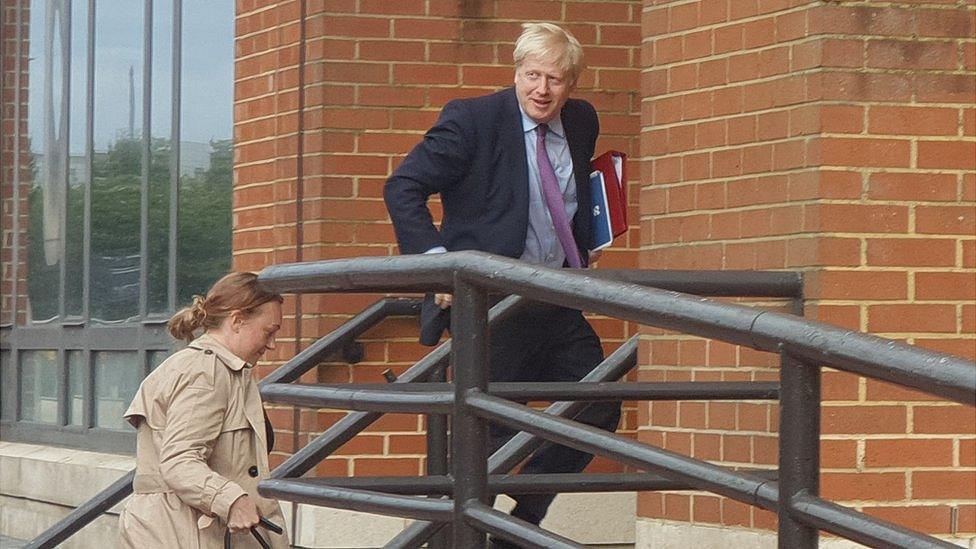
Boris Johnson was booed by protesters as he arrived at the National Assembly for Wales on Tuesday
Ahead of his meeting with Mr Johnson, Mr Drakeford tweeted, external Brexit "will decimate our agricultural and manufacturing sectors and risks ripping the Union apart".
"The PM must stop playing fast and loose with our country," he said.
Earlier on Tuesday, Welsh Secretary Alun Cairns suggested new global markets, including in Japan, will be available to sheep meat producers.
Mr Cairns told the BBC: "We are now looking to the growth that will come from right around the world, 90% of global growth will come from outside of the EU,
"But we don't want to close our back on the European market either and that's why working hard to get a deal is important, but of course there needs to be a shift in attitude and a positive response to the cause that we're making."
Plaid Cymru Westminster leader Liz Saville Roberts pointed out via Twitter the Japanese market had been opened up to Welsh lamb by the EU-Japan trade deal.
Mr Cairns added farmers "can be guaranteed that the same money will be available to ensure that we are protecting this sector".

Analysis
By Felicity Evans, BBC Wales political editor
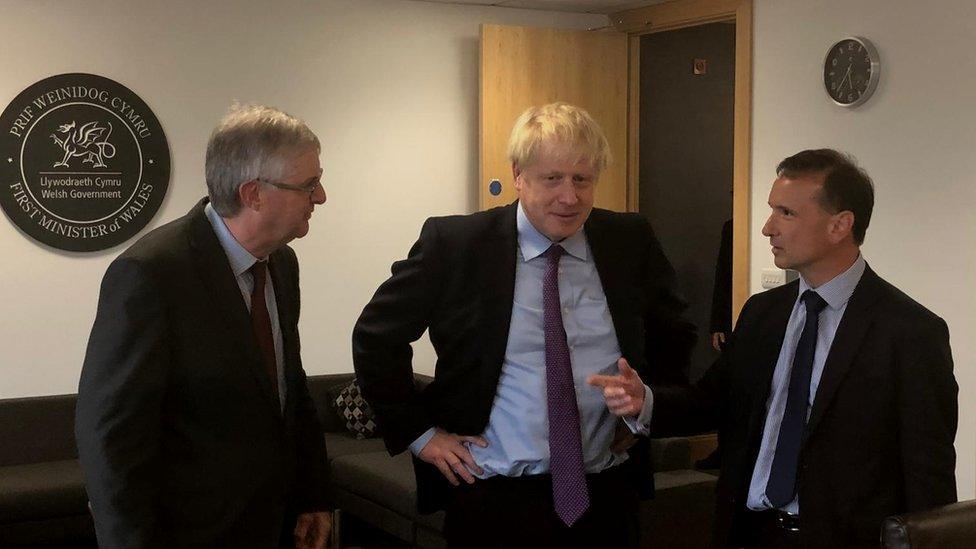
Mark Drakeford told a press conference there was a "deeply concerning lack of detail" from Boris Johnson
It is clear there was no meeting of minds between Mark Drakeford and Boris Johnson.
As well as having "fundamentally different views" on Brexit, the two leaders are very different characters.
The first minister is a details man - after Brexit he wants to know what support will be on offer to Welsh manufacturing and agriculture, when it'll be available and how long for.
But the prime minister paints in bold colours, and he knows that despite concerns over the impact of a no-deal exit in Wales, voters here chose to leave the EU in 2016.
This is the first of many meetings between the two leaders - whether they can find common ground remains to be seen.
- Published29 July 2019
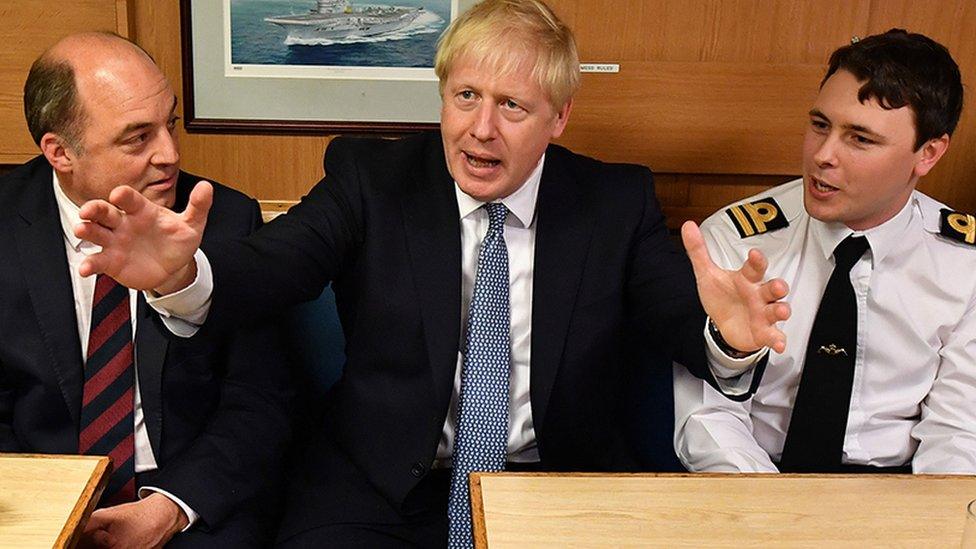
- Published22 July 2019
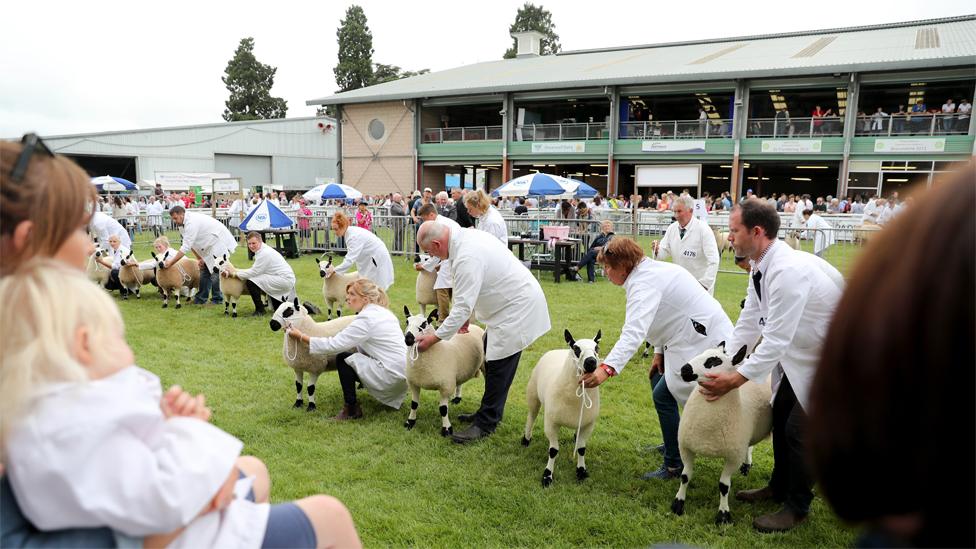
- Published28 July 2019
